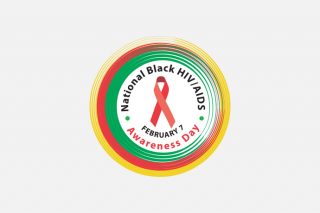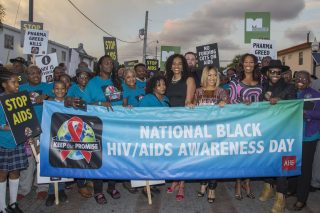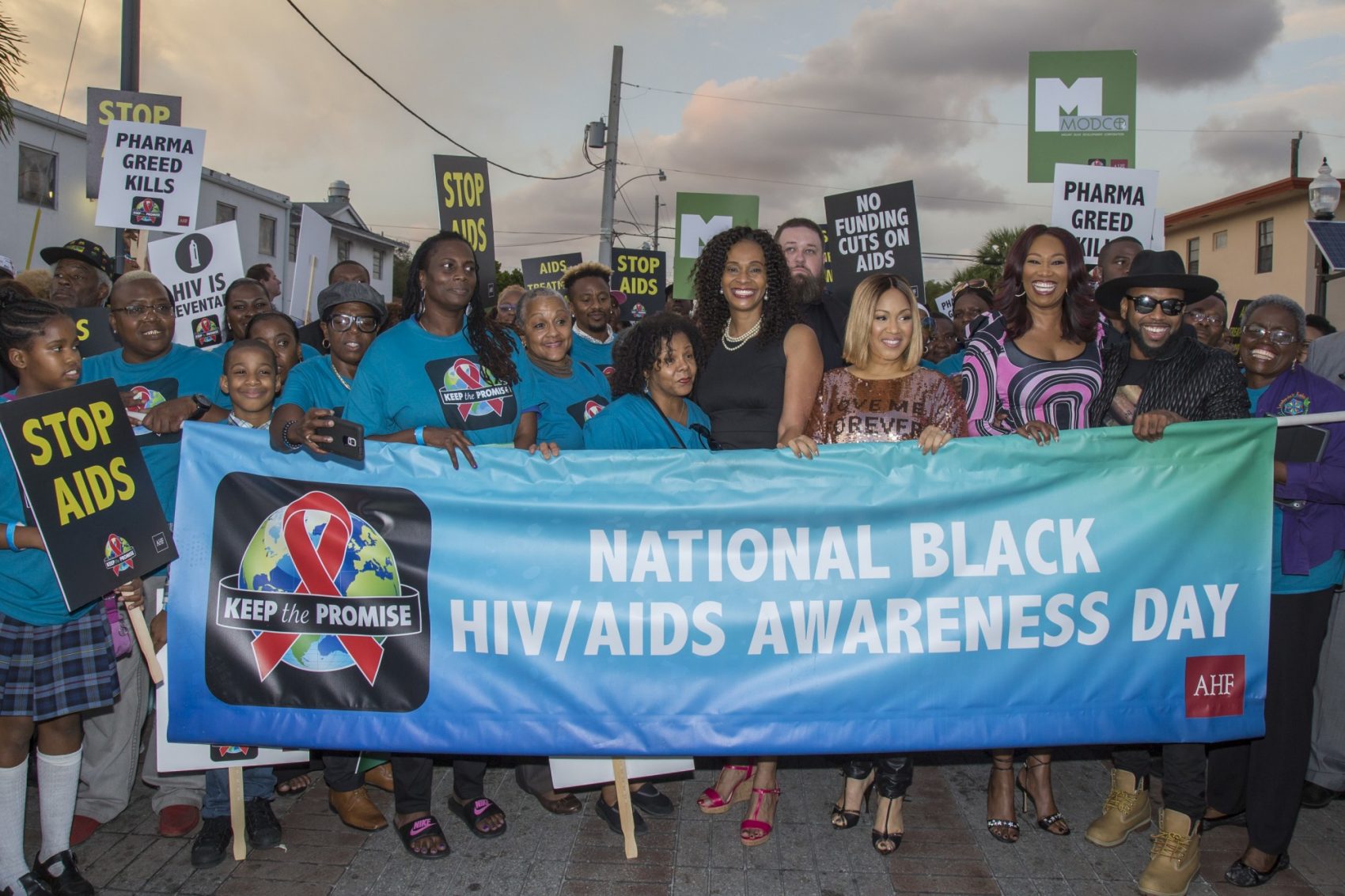Washington, D.C. (Thursday, February 7, 2019) – Today marks National Black HIV/AIDS Awareness Day and advocates say it’s an important time to remember the fight, triumphs, and the challenges still ahead. According to their website, the National Black HIV/AIDS Awareness Day (NBHAAD) initiative began in 1999 as a grass roots effort that aimed to raise the awareness regarding HIV and AIDS prevention, care and data-driven education in communities of color. As the challenges and solutions associated with HIV have evolved, NBHAAD has modified it’s theme, focus, and methods of national support.
Meanwhile, New Ryan White HIV/AIDS Program data show that a record-high 82.6% of black/African-American receiving HIV medical care are virally suppressed, according to the Health Resources and Services Administration.
Today, (NBHAAD) urges organizations, clinics, and communities across the country will commemorate 20 years of National Black HIV/AIDS Awareness Day promotion and engagement. This year, the campaign encourages communities to work in unison by stopping HIV together.
Everyone can play a part in reducing HIV transmission by getting tested, promoting prevention using state-of-the-science prevention methods like PrEP, and normalizing conversation about sexuality, gender, STIs, and HIV.
So what can you do today to mark National Black HIV/AIDS Awareness Day? Encourage someone you love to come with you to receive an HIV test. No matter the results, you can still be a part of a global effort to reduce HIV transmission by educating ourselves about prevention options and quality clinical treatment.
Meantime, As part of its ongoing effort to help educate the African-American community about the importance of knowing their HIV status, and to commemorate the 2019 National Black HIV/AIDS Awareness Day, the Pri nce George’s County Health Department is participating in a free HIV testing event for the community on Tuesday, February 12th at Prince George’s Community College (PGCC).
nce George’s County Health Department is participating in a free HIV testing event for the community on Tuesday, February 12th at Prince George’s Community College (PGCC).
The event, Black Health Empowerment Day, is at PGCC’s Health Education Center, located at 301 Largo Road, Bladen Hall, Room 132, Largo, MD 20774 from 10:00 a.m. to 2:00 p.m. Along with PGCC, the Health Department is partnering with University of Maryland Capital Region Health Prince George’s Hospital Center to offer free HIV and STI screenings, blood pressure screenings, and a variety of giveaways at this event.
This year’s theme for National Black HIV/AIDS Awareness Day is “Together for Love, Stop HIV Stigma.” It is a community mobilization initiative that occurs each year on February 7th to encourage African Americans to get educated about HIV/AIDS, as well as get tested, get treated, and get involved to help stop the spread of the virus.
The HIV epidemic continues to disproportionately affect the African-American community nationwide and in Prince George’s County. According to the latest data, African Americans comprise 62 percent of the county’s population, but represent 83 percent of those in the county living with HIV.
“We are making progress in the HIV/AIDS fight in Prince George’s County,” said Acting Prince George’s County Health Officer Dr. Ernest L. Carter. “The number of new cases each year has been dropping and more people than ever are getting treated early, which helps suppress their viral load and increases their chances of living longer. Getting into early treatment also greatly reduces the chance the virus is spread to someone else.”
“However, we continue to see African Americans, especially African-American gay and bisexual men, account for the majority of HIV diagnoses in our region and nationwide. We need to continue encouraging safer sex practices, regular HIV testing, and addressing socioeconomic factors that impact the overall health and welfare of the African-American community,” said Carter.
In addition to the county’s periodic free HIV testing community events, the Health Department offers free, year-round testing and treatment at two of its clinics five days a week through the HIV/AIDS Program (HAP). HIV testing and treatment are also available at four school-based wellness centers as well as for teens and young adults at the Healthy Teens and Young Adults Center.
For additional information about Black Health Empowerment Day or National Black HIV/AIDS Awareness activities, call 301-583-3170 or 301-583-3700.
